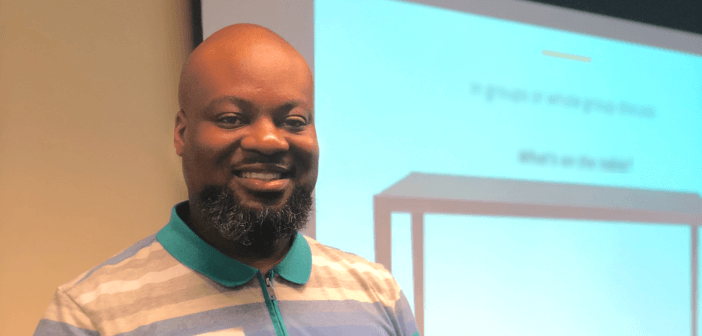Doug Powe of the Lewis Center suggests congregations take a different approach to Black History Month this year. He outlines ideas to encourage church members to think more deeply about faith and race through relational engagement, interracial dialogue, and substantive study.
February is Black History Month. In some congregations, it may be a time to incorporate elements of religious expression from the African American tradition into their worship services. (Some congregations, of course, already have these elements). For other congregations, February is just another month.
What if this year your congregation takes a different approach? Black History Month is an opportunity to engage African American history in a way that encourages your parishioners to think more deeply about their faith and race relations. Here are some ideas to help your congregation approach the month differently.
1. Partner with a racially different congregation.
It’s not unusual for congregations to do pulpit or choir exchanges. But if the goal is to really impact congregation members, not just the pastors, it’s important to find ways to develop dialogue between parishioners. Instead of a choir exchange, do a combined choir (post-COVID-19, of course) where half of the choir from each church joins half of the choir from the other church to create two mixed choirs. The choir members then have the opportunity to rehearse a couple of songs together and interact in ways that allow them to get to know one another at a deeper level. This of course will require some planning, but it’s a new twist on something some congregations already are doing.
Another possibility is organizing a combined small group book study. This can be done virtually or in person when COVID-19 is over. Keeping the groups to six to eight people will encourage full participation by all who join. The idea is to pick a book that promotes good discussion and allows for individuals to hear why someone of a different race might interprets things differently. Ground rules will have to be set so that it is a safe space. This approach could work for interracial dialogue as well as a book story.
A small group discussion around a movie is another way to create dialogue. This can be done virtually with individuals watching the movie on their own and having the discussion on Zoom. Post-COVID-19, of course, it could be in person. The nice thing about the movie option is you can do one movie or decide to do a movie each week allowing individuals various opportunities to participate during the month.
2. Virtual events
Even in this challenging COVID-19 time, many good virtual events are available. For example, the African American Museum in Washington, DC, will have several virtual events during Black History Month, and some are free. There are probably also free virtual educational events in your own community that can spur discussion among interested individuals. Taking advantage of such virtual offerings can lead to deeper conversation and engagement.
3. Guest presenters
Many people hold stereotypical views of “The Black Church” based on depictions in movies and on TV. Many are not familiar with the many different African American denominations and the subtle differences between them. A guest speaker can share a fuller picture of African American religiosity and create a good dialogue. Many individuals, for example, are familiar with Dr. Martin Luther King Jr. but may not be familiar with the countless other important figures who preceded King, for instance the Rev. Vernon Johns who preceded King at Dexter Avenue Baptist. A knowledgeable presenter can offer a broader perspective and hopefully create an ongoing dialogue.
4. Support African American businesses.
There are likely several African American businesses in your area. A simple internet search will often give you a list. For those who do not typically support African American businesses this is an opportunity to do so. Inviting African American business owners to share their stories adds an educational element. It is an opportunity to support businesses that you may not be as familiar with and to engage the owners who run them.
Think about taking a different approach to Black History Month this year and in years to come. A deeper engagement can promote education and encourages dialogue among those people of different ethnicities and life experiences.
Related Resources
- Honest Talk about Race and Racism, a Leading Ideas Talks podcast episode featuring Michael R. Fisher Jr.
- The 4 “C’s” of Impactful Leadership by Doug Powe
- Martin Luther King Jr.’s 4 Key Principles of Prophetic Witness by Tony Hunt







